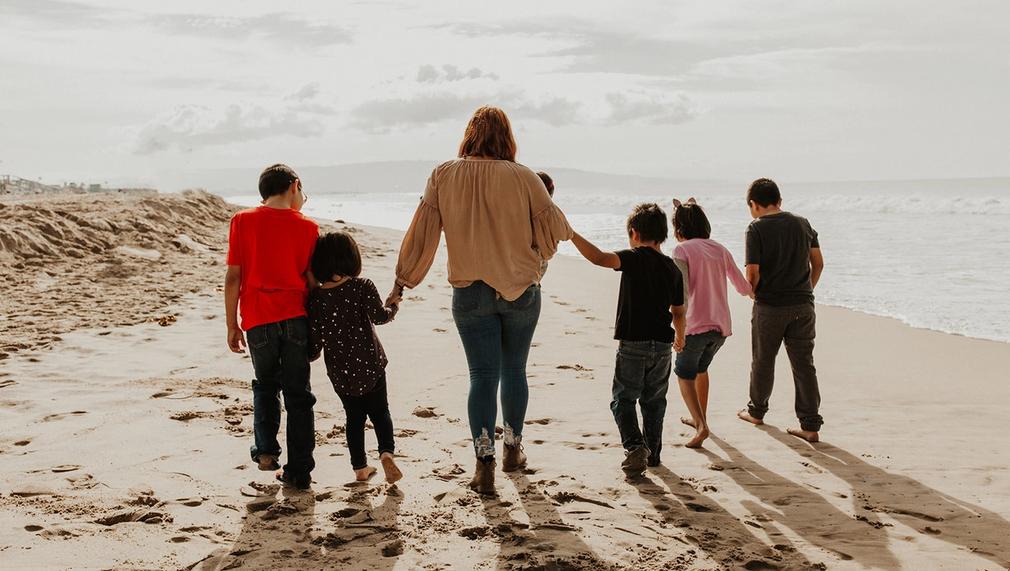Bridge to Thrive: Family Housing, Health, and Financial Empowerment Program
Bridge to Thrive is an innovative, early-stage program by Family Promise of the South Bay that provides families experiencing homelessness with transitional housing, on-site health care access through Health Net, and financial empowerment training. By addressing the interconnected challenges of housing instability, limited health care access, and income inequality, this holistic initiative helps families build lasting stability and thrive in Los Angeles.

What is the primary issue area that your application will impact?
Affordable housing and homelessness
In which areas of Los Angeles will you be directly working?
Long Beach South Bay
In what stage of innovation is this project, program, or initiative?
Pilot or new project, program, or initiative (testing or implementing a new idea)
What is your understanding of the issue that you are seeking to address?
Los Angeles faces a layered crisis where family homelessness, unaffordable housing, lack of health care, and income inequality intersect. Over 75,500 people are unhoused, with families especially vulnerable (LAHSA, 2023). The region lacks over 500,000 affordable rental homes (California Housing Partnership), and low-wage workers, immigrants, and communities of color face barriers to care (CHCF). LA’s vast income gap deepens cycles of poverty (UCLA Luskin). We understand that without coordinated access to housing, health care, and economic tools, families remain trapped in instability. In response, our “Bridge to Thrive” initiative integrates transitional housing, job training, financial literacy with matched savings, and direct health care enrollment through our new partnership with Health Net. This model directly addresses the root causes and provides a scalable path to long-term family stability and resilience in LA.
Describe the project, program, or initiative this grant will support to address the issue.
Bridge to Thrive is a holistic initiative that addresses the root causes of family homelessness through stable housing, health care access, and economic empowerment. This program responds to the layered crises of housing insecurity, health disparities, and income inequality, challenges that disproportionately impact low-income families in Los Angeles. A cornerstone of this initiative is our new partnership with Health Net, which allows us to directly enroll uninsured families into Medi-Cal and connect them to immediate physical and mental health services. Early implementation shows over 70% of participating families are linked to care within weeks.
Families also receive transitional housing with wraparound case management, job training, financial literacy education, and matched savings accounts, creating pathways to long-term self-sufficiency. Recent data shows promising outcomes, over 80% of families secured permanent housing within six months. Each component is rooted in evidence-based practices, such as HUD’s supportive housing model and financial capability programs proven to improve family stability.
Led by a diverse team with lived experience, deep community roots, and trauma-informed expertise, “Bridge to Thrive” is designed to scale and replicate. With LA2050’s support, we aim to expand access to this innovative model, improve lives, and build lasting systems change across Los Angeles.
Describe how Los Angeles County will be different if your work is successful.
When Bridge to Thrive reaches its full potential, LA will be transformed from a county long plagued by family homelessness, health inequities, and economic disparity into a national model of equity, resilience, and opportunity. Families that once cycled through shelters will thrive in stable homes, access preventive healthcare, and build intergenerational wealth. The ripple effect will be visible in reduced homelessness rates, healthier neighborhoods, lower emergency health costs, and stronger local economies.
For the county, it means more efficient and humane systems, where housing, health, and workforce development are integrated rather than siloed, leading to more innovative use of public funds and more effective service delivery.
For communities, it means empowered families contributing to civic life, children growing up without trauma from housing instability, and a cultural shift where compassion, dignity, and proactive investment in human potential become core to LA’s identity.
Approximately how many people will be impacted by this project, program, or initiative?
Direct Impact: 56
Indirect Impact: 168